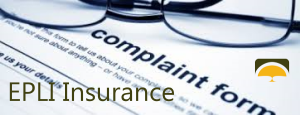Lawn Care and Landscaping is a diverse industry and with that diversity comes a lot of risk. How you go about protecting your business from those risks can make all the difference in the long term success of your business. Some landscaping businesses simply mow lawns, others lay sod and plants shrubs, some even climb several feet into the air to work on trees and others grow and sell plants at one central location. No matter what type of landscaping business you are running, here are 6 coverages that every business in this industry should carry.
- General Liability
- Workers’ Compensation
- Commercial Auto or Hired and Non-owned Auto
- Inland Marine
- Commercial Property
- Business Owners Package
General Liability Insurance is a policy that most every business needs. Depending upon the state and industry you operate in, it is required by law to be in business. For the lawncare and landscaping industry this coverage can prevent your business from damage that is caused to third parties by you or your employees. This can apply regardless of whether the incident occurs on your property or at the property of the customer.
In 48 out of 50 states workers comp is required by law. What you pay in premium will depend on your experience modification rating and the NCCI class code for your business. Lawn care and Landscaping is an industry that has several classification codes which include: 9102, 0042, 9182, 0106, 9220, and 9016.
Commercial Auto or Hired and Non-owned Auto
Commercial Auto and Hired and Non-owned Auto Insurance are two coverages that deal with vehicles being used for business purposes. Which of these two coverages your business needs is determined by whether or not the business owns the vehicle that is being used for daily work. If you have employees using their own vehicle as a part of their job than you need Hired and Non-owned Auto Coverage. If you are leasing the vehicle for the season, than this is the coverage you need as well. If your business owns the vehicle than you need commercial auto insurance.
Inland Marine Insurance Coverage is also known as equipment coverage or floaters coverage. These terms are used because this insurance is for equipment not covered by your property or auto insurance policies and it is usually equipment that is going to be in transit. If you have a trailer with several pieces of equipment that is going to be transported to several locations throughout the day than you need this type of coverage. This could also be necessary for greenhouses if they are having plants delivered to a clients location. while the products are being transported they would be covered by this policy.
If you own property, no matter how big or small than you need this coverage. Without it you can put at risk everything that makes your business run. Unless you can afford to replace the property and everything inside it than you need this coverage. This policy can usually be added to BOP for minimal cost to the business.
Most insurance carriers have what are called Business Owners Packages designed for each industry and each classification code. Through their experience with claims in each industry, each carrier has a basic recommended package of coverage they deem appropriate for each business. These packages can be adjusted based on the industry you are in and the amount of risk you as a business owner are comfortable taking. This is where the advice of an experienced insurance agent who you trust can be very valuable. An experienced agent should be able to lay down the risks and rewards of each coverage and help you to make the most informed decision possible when buying insurance for your business.
SIC Business Insurance Codes:
• 0781- Landscaping and Planning
• 0782- Lawn and Garden Services
NAICS Liability Classifications:
• 541320- Landscaper Architectural Services
• 561730- Landscape Services
Business ISO General Liability:
• Code: 97047- Landscape Gardening
• Code: 97050- Lawn Care Services
Common Workers Compensation Class Codes:
• 0042- Landscapers and Drivers
• 9102- Park Maintenance, Lawn Care, and Drivers
• 0106- Tree Pruning or Spraying







